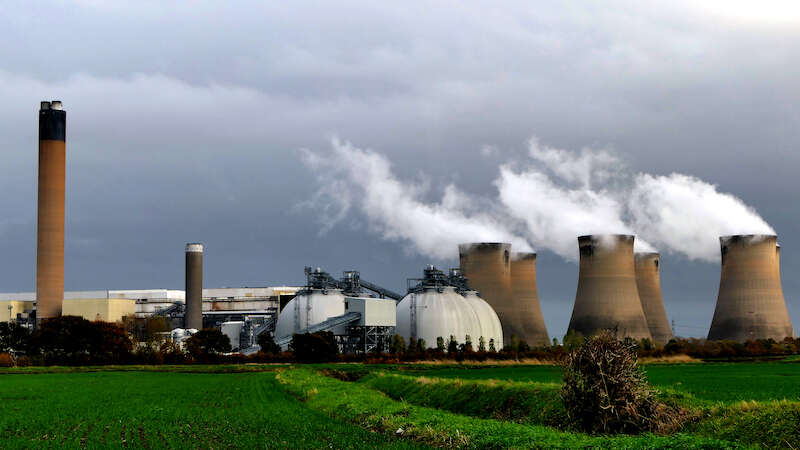Drax Carbon Capture Plan Could Cost Households £500

Drax’s plans to capture the carbon emitted by its wood-burning generators could cost energy bill payers £31.7 billion, more than the cost of subsidising the Hinkley C nuclear power plant, a climate think tank has warned.
Ember says the FTSE 250-listed company is already on track to earn £10 billion in subsidies from energy bills for its biomass generators.
If Drax clinches a subsidy contract to run the four biomass units at its North Yorkshire plant for their full 25-year lifespan that bill could spiral to £31.7 billion, or £500 per household. The think tank calculated the sum using research commissioned by the government on the cost of bioenergy generation paired with carbon capture technology.
Drax has been burning wood pellets to generate electricity since 2016, with four of the units at its massive power station now converted. The plant stopped burning coal in March, ahead of the 2024 deadline for phasing out the fossil fuel from Great Britain’s power grid.
Drax claims biomass is carbon neutral because although carbon emissions are released when the material is burned, the trees removed CO2 from the atmosphere during their lifetime. Further, the company claims it will become a “carbon negative” generator by 2030 by retrofitting its biomass power plant with carbon-capture technology.
But scientists and environmental groups have raised objections to the classification of biomass as carbon neutral and to the high cost of capturing the carbon it emits. They argue that the sourcing of biomass is destroying mature forests which will take generations to regrow, leaving a carbon debt that won’t be paid off for decades.
They also note the carbon impact of transporting wood pellets to the power stations where they will be incinerated. Drax sources its wood pellets from the United Stations and recently announced it will spend $40 million to build three new wood pellet production plants in Arkansas.
Despite the controversy, biomass is Great Britain’s second-largest “renewable” energy source, responsible for 7-9% of the country’s electricity. Biomass generation also qualifies for government subsidies, to the tune of £1.9 billion in 2019. £1 in every £5 spent by the government on renewable energy is directed to biomass.
Drax dismissed Ember’s research, saying the government study on which its calculations are based used cost estimates for developing a new power plant for biomass. It’s cheaper to retrofit an existing plant, the company said.
The firm also said the report exaggerates the total potential cost to energy bill payers by assuming the subsidy contract would last for 25 years. That’s 10 years longer than the subsidy period currently proposed by the government for carbon-capture projects.
A spokesperson said Drax’s biomass project “will save the UK more than £4.5bn over the coming decade, as well as removing millions of tonnes of CO2 from the atmosphere and supporting tens of thousands of jobs.”
A government spokesperson wouldn’t comment specifically on Drax’s plans ahead of the formal planning process.
“At every step on the path to net zero, we will put affordability and fairness at the heart of our reforms. The UK only supports biomass which complies with strict sustainability criteria,” they said.
Drax recently scrapped a controversial plan to build the largest gas power station in Europe on the Selby site. The proposed gas units would have been responsible for 75% of the emissions from Great Britain's electricity grid.
Read on our blog

With the government poised to implement tough new measures to...

Budget broadband provider TalkTalk has been notifying customers via email...

A year-long investigation by charity Citizens Advice has revealed a...

Education Secretary Nadhim Zahawi has announced a new commitment to...
